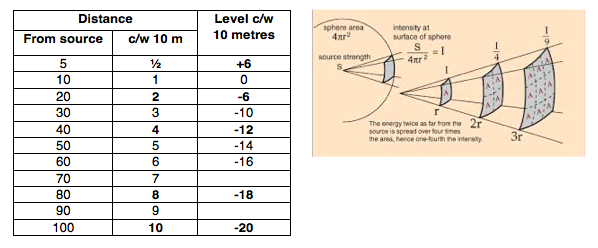How Can You Make Your Portable Generator Quieter? 9 Simple Tricks
When considering prepping one of the first things that comes to mind is what will you do in a power outage. The simplest answer to that is to purchase a generator capable of providing the power.
Generators are also used on construction sites when traditional power sources are not available. While noise is not as critical in these situations a quieter generator would not hurt anything.
Yet another scenario in which you might want a portable generator is when camping. Whether camping in an RV or a tent there are certain niceties that make having electricity around great. These generally stem from cooling such as fans or AC and cooking uses.
However, despite the benefits generators can produce an extraordinary amount of noise. That is why we are going to discuss 9 simple tricks that can show you how to make your portable generator quieter.
What Are the Primary Causes of Noise from Your Generator?
Most generator noise is produced from the combustion action of the engine. The sound of the cooling system, exhaust gases and vibration of the engine make up the rest.
Depending on the size and design of your generator each of these noise sources can produce varying levels of sound.
Larger standby generators tend to have much larger engines, often with multiple cylinders. These tend to be much louder than their portable generator counterparts. However, their design usually accounts for this and they frequently come with large insulated cases. These dampen a large portion of the noise they produce.
In the case of smaller portable generators the majority of the noise level is produced from exhaust gases escaping the muffler and the vibration of the generator. This vibration tends to produce more noise than in the larger standby generators. Due largely to the light weight of a portable generator allowing it to move around.
We will now move on to those tips that can help quieten your portable generator.
9 Tips For Making a Generator Quieter
- Verify your generator is properly sized for your needs.
- Consider the position of your generator.
- Consider swapping out the muffler
- Examine the surface vibration and consider insulating the vibrations.
- Use sound blocking material.
- Purchase a generator silencer.
- Build a shelter box for your generator.
- Employ the water bucket trick.
- Consider the exhaust angle.
Verify Your Generator Is Properly Sized for Your Needs
It should be fairly obvious that beyond costing more a larger generator is likely to produce more noise. The first step in reducing your generator’s noise levels is to select a generator that is able to provide the power you need.
This involves knowing what you plan on powering and how much you have to spend. You can then decide if you want to devote some of those funds to a quieter generator or to a more powerful generator based on your specific needs.
If you plan to power only a small amount of electronics such as phones, tablets and led lights then you can opt for a far smaller and quieter generator than if you want to be able to run a refrigerator or ac unit.
Compile a list of the essential equipment you need to run. If you check either the data plates located near the plugs or on the power plugs themselves you can usually find how many watts they require to operate.
Add all of these wattages together if you plan to run the items together. You can then select a generator with an output high enough to meet these needs. Oftentimes these come in at around 3000 to 5000 watts for most uses.
You can also find quiet generators in the same power output range that cost a bit more in exchange for the added silencing tech such as better mufflers or housings.
Consider the Position of Your Generator
Another simple step that you can take to reduce how much the noise of your generator bothers you is to simply set it further away. By placing the generator at least 20 feet away and turning the exhaust away from your location you will notice a definite change in the noise levels.
While placing the generator further away does reduce the noise level that you hear, keep in mind that it does not truly quieten the generator. Keep other people in mind, this is especially important when at busy campgrounds.
If neighbors and distance are not issues then you are limited only by the length of drop cords you have available. The further it is placed the lower the volume you hear will become. Keep in mind the cords need to be heavy duty to safely carry the current an extended distance.
Many generators list the decibel “volume rating” of the generator, this volume level is normally calculated with the generator positioned 20 feet away.

The chart above provides an example of the decibel reduction you can expect by moving your generator further away. Keep in mind that the number listed on your generator assumes that it is already at 10 from the source.
Consider Swapping Out the Muffler
The muffler is the mechanical part of the generator responsible for reducing the level of noise produced by the exhaust system. If your muffler has become damaged or is no longer working then your noise level can increase drastically.
Beyond replacing a damaged muffler it is often possible to get a larger aftermarket muffler. Depending on the design and quality this can improve the noise output as well.
A muffler is essentially a cylindrical object containing perforated tubes. These are designed to deflect sound waves within the muffler and disturb their wavelengths. This results in a lower volume of noise exiting the exhaust system.
It can be possible to reduce the decibel levels by anyway from 9 to 12 decibels by upgrading to a high quality muffler.
This may be difficult as frequently there are not many options for aftermarket mufflers for generators. In this case try contacting some local small engine shops. They may be able to either help you modify a muffler or point you to someone who can assist you with this.
Examine the Surface Vibration and Consider Insulating the Vibrations.
As mentioned before generators will tend to vibrate while running. If the generator is positioned on a hard surface then this vibration will cause the metal frame of the generator to produce unwanted noise.
You can reduce some of this noise related to vibration by moving the generator to a softer surface. For instance if it is on a concrete pad you can move it to grass or dirt. Both of these are great options as they will lower some of the noise levels. When selecting an area attempt to avoid any hard surfaces if possible. These include asphalt, concrete, wood and metal.
If it is not possible to avoid positioning the generator on a hard surface then there are some steps you can take to reduce the impact of the vibrations. Considering putting a mat, or rubber pad under the generator. You can also cover the feet of the generator with rubber or even obtain some rubber stoppers for them.
Another option in a pinch is to wrap the bottom bars of the generator with an old innertube. This will insulate the metal from the hard surface below it.
While it is difficult to say how much this step will reduce your noise level, you can expect a 1 to 3 decibel reduction.
Use of Sound Blocking Material or Sound Deflectors
Sound deflectors are another great way to reduce the noise output of your generator. A sound deflector is nothing more than an object used to deflect the noise away from a given area.
Keep in mind that this is similar to distance in the way it affects the noise output. It does not actually reduce it, it just moves the sound output to another area. This again makes them ideal as a temporary set up and if it is not going to annoy your neighbors.
A sound deflector can be made with nothing more than a few sheets of plywood. Place these on their side and position them so that they are between your location and the generator. This will cause a majority of the sound to be deflected in the opposite direction.
Another example of this is simply placing the generator behind another physical structure. That structure will then become your sound deflector reducing the amount of sound that reaches you.
Purchase a Generator Silencer.
A generator silencer is a larger muffler than can be slid over your existing muffler. In some cases these have to be custom modified to fit your particular generator. This can be done fairly easily with the assistance of a shop.
Generator silencers are categorized under three categories; reactive, absorptive and combination silencers. Each category will have slightly different characteristics and how they reduce your noise output.
Similar to a muffler upgrade, a silencer can provide one of the larger actual reductions in noise output. A silencer does not simply mask the noise like deflectors or distance does.
Keep in mind though purchasing a generator silencer may be one of the more expensive ways to make your generator quieter.
Build a Shelter Box for Your Generator.
One step that you can take that greatly reduces the amount of noise produced by your generator and that can protect it from the rain is to construct a shelter box or generator quiet box.
This will act almost like a soundproof cage or advanced sound deflector for your generator. Enclosing the generator in a shelter box will muffle the sound and dampen how much can be heard.
By building a shelter box for your generator you can move it around far easier than you can lug around large pieces of plywood commonly used as deflectors.
With careful design you can build a box capable of carrying other supplies. This can also double as your generator housing by removing the items in it. You can then flip it over and cover the generator with it.
Consider the exhaust angle.
While this one falls within the same concept as considering your positioning, you should examine the output for your exhaust. By ensuring that it points either straight up or straight down you can reduce some of the effects of its noise output compared to having it facing to the side.
This stems from the dissipation if vented straight up into the air or the interference with the sound waves if vented straight down.
To minimize chances of water contamination I normally suggest venting the exhaust downwards. However, this may not be advisable if you largely use your generator in the woods where you may have combustible items such as leaves and pine straw beneath the generator.
Employ the Water Bucket Trick.
If you don’t want to or can’t afford an upgraded muffler or a silencer then you could try the water bucket method. The water bucket method uses water to muffle the sound or your generator by piping the exhaust gas into the water.
You can do this by connecting a piece of hose to the exhaust pipe and placing the other end in a 5 gallon bucket of water. You might want to add a short generator muffler extension in order to allow the exhaust to cool a bit before entering your piece of hose.
Be Careful of backflow of the water, you can avoid damage to your generator by putting a small hole in the hose above the water level. This will prevent the water from being sucked into the generator.
The Conclusion of How to Make a Generator Quieter
By using a combination of the steps discussed here you can drastically decrease the overall noise levels produced by your generator. This could lead to a more pleasant experience whether it is an emergency use, or a family camping trip.
I feel the cheapest and most effective way to make your generator quieter is to use a shelter box, place the generator on a soft surface and position the generator as far away as possible. Hopefully you learned how to reduce generator noise by employing a few of these simple steps.







